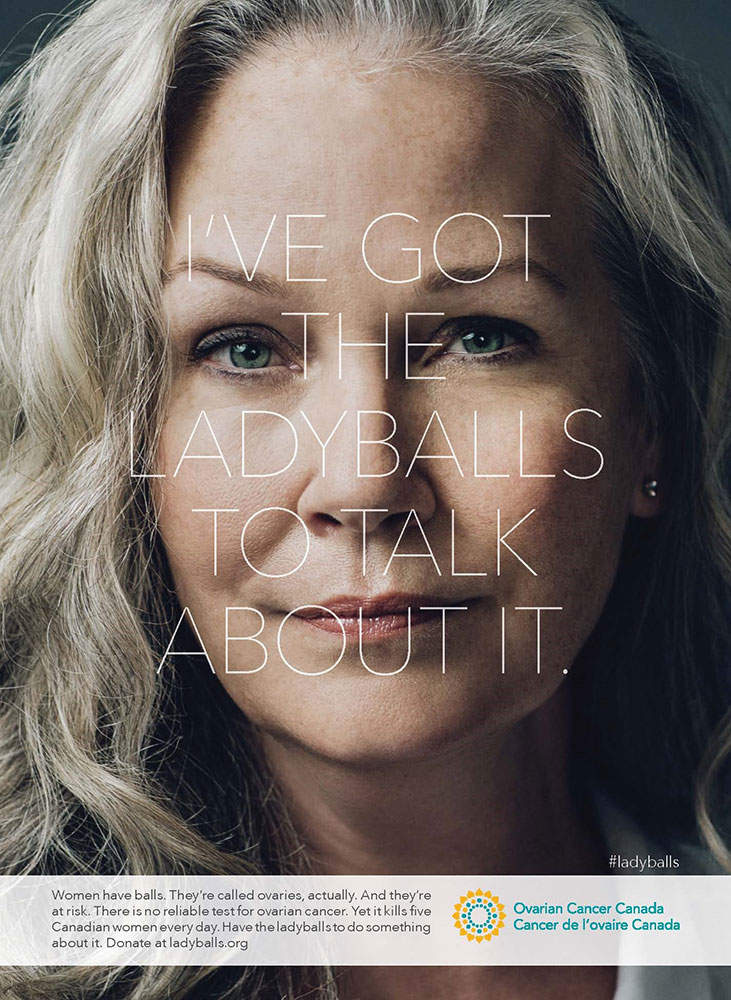By the time ovarian cancer is detected, it's often too late to save a woman's life. With no screening test, vague symptoms and little understanding even in the medical world, it's been named "the silent killer." A silent killer that sadly takes five Canadian lives every day.
Ovarian Cancer Canada and Grey needed to get women to care about a disease they know nothing about, so that they would then talk to their doctors and each other about it.
The agency explored how to talk about ovaries in a way that was comfortable and culturally relevant, and not just clinical. Research showed that people weren't very comfortable with the term "ovaries." However, when talking about the male equivalent (gonads, or balls), people associate the term with courage, audacity and chutzpah. So what if women's ovaries were positioned as female "balls"? What if they represented the same bravery as their male counterparts? And the same bravery it took to fight the fatal disease?
It takes grit, courage and strength to battle women's most fatal disease. It takes "Ladyballs."
To put this message across, Grey created a powerful spot that brought the notion of "Ladyballs" to life in a way that was relevant and real. It showed situations a modern woman might find herself in — such as a business meeting or a social gathering — where she was forced to make brave and bold decisions. The conversation then became, "Do you have the ladyballs to do something about ovarian cancer?"
To support the video, a series of print and digital ads showcased the faces of strong and assertive women — everyday women with that same grit and determination to speak up about ovaries and ovarian cancer.
On social, we took it to the next level and encouraged people (including influencers and celebrities like ovarian cancer survivor and model Elly Mayday) to share their own "Ladyballs."
With more than $9 million in donated media space, the campaign resulted in an average increase of 22 donors calls per week and a 118% increase in medical inquiries from women across the country. Since launch, social engagement has increased by 220% and calls to OCC regional offices have gone up by 35%. The campaign even prompted one donor to pledge $100,000.


